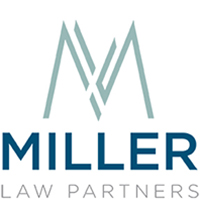Governor Newsom recently signed several new employment bills into law for 2022. Without a doubt, the COVID-19 pandemic significantly impacted this year, prompting pandemic-related policy to be included in this year’s legislation.
Below is a compilation of relevant new laws that California employers need to know. Unless otherwise noted, the new laws go into effect on January 1, 2022.
What’s New for 2022?
SB 62: Garment Manufacturing
This bill requires garment manufacturers and brand guarantors to be jointly and severally liable for wage violations. The measure also prohibits the use of “piece-rate” compensation for garment manufacturing, imposing a penalty of $200 per employee, payable to the employee, for each pay period in which the employee is paid by piece-rate.
SB 93: COVID-19 Rehiring Displaced Workers
Effective April 16, 2021, California’s “Right to Recall” law provides that covered employers must offer certain employees who were laid off due to the COVID-19 pandemic specified information about job positions that become available for which the laid-off employees are qualified, and to offer positions to those laid-off employees based on a preference system, in accordance with specified timelines and procedures. Covered employers include hotels, private clubs, event centers, airport hospitality operations, airport service providers, as well as janitorial, building maintenance and security service providers to office, retail, and other commercial buildings.
An employer that declines to recall a laid-off employee on the grounds of lack of qualifications and instead hires someone other than a laid-off employee, must provide the laid-off employee a written notice within 30 days including specified reasons for the decision, and other information on those hired.
Employers are prohibited from refusing to employ, terminating, reducing compensation, or taking other adverse action against any laid-off employee for seeking to enforce their rights under these provisions. The measure expires on December 31, 2024.
Notably, SB 93 is in addition to any local right-to-recall ordinances in effect.
SB 331: Settlement and Non-disparagement Agreements
SB 331 prohibits the use of non-disclosure provisions in settlement agreements that seek to prevent the disclosure of factual information related to a claim filed in a civil action or compliant filed in an administrative action, in any case involving employment discrimination, harassment, or retaliation of any type prohibited by the Fair Employment and Housing Act (“FEHA”), not just limited to sexual harassment. This includes discrimination, harassment, or retaliation on the basis of race, sex, gender, age, religion, origin, ancestry, physical disability, mental disability, medical condition, genetic information, marital status, sexual orientation, or veteran or military status.
SB 572: Enforcement Liens
This bill provides the Labor Commissioner the authority to create a lien on real property to secure amounts due to the Labor Commissioner under any final citation, findings, or decision.
SB 606: New Penalties for Workplace Safety Compliance
This legislation extends and increases Cal/OSHA’s scope of enforcement, creating two new violations categories, “enterprise-wide” violations (where an employer has multiple worksites) and “egregious” violations. During an investigation, if an employer neglects to “promptly” provide Cal/OSHA requested information in a “reasonable period of time,” Cal/OSHA will now have the power to issue and enforce a subpoena.
SB 639: Minimum Wages for Persons with Disabilities
This bill requires the development of a plan to phase out the use of the subminimum wage certificate program, which authorizes employers to pay less than minimum wage for employees with physical or mental disabilities. SB 639 prohibits new licenses from being issued after January 1, 2022. Existing permit holders will need to meet certain benchmarks to renew their licenses in the phase-out plan.
SB 646: PAGA Exemption for Unionized Janitorial Employers
SB 646 creates an exemption from PAGA for janitorial employees covered by a valid collective bargaining agreement in effect at any time prior to July 1, 2028, that meets specified criteria, including providing for wages, hours of work, and working conditions of employees, in addition to premium wage rates for all overtime hours worked. The PAGA exemption will expire the date the CBA expires or July 1, 2028, whichever is earlier. SB 646 becomes effective January 1, 2022.
SB 657: Electronic Documents
This bill authorizes employers to distribute information they are required to physically post to employees via email with document(s) attached. Notably, the employer is still required to physically display the required posting.
SB 762: Arbitration
This bill requires arbitration providers in consumer and employee arbitrations to send invoices containing specified information at specified times to all parties on the same day and by the same means. Such arbitration fees will be required to be paid upon receipt of invoices, unless otherwise specified in an agreed upon payment schedule.
SB 807: Record Retention
SB 807 extends the current personnel records retention requirement from two to four years. Where litigation is filed, records must be retained by employers until the applicable statute of limitations has run, or until the conclusion of the litigation, whichever occurs later.
AB 654: COVID-19 Exposure and Notification
This bill follows-up on last year’s AB 685 and largely conforms language regarding COVID-19 exposure notifications to the Cal/OSHA Emergency Temporary Standard (ETS). Language requiring employers with outbreaks to be published by name was deleted from the bill.
AB 1003: Criminal Liability for Intentional Unpaid Wages
AB 1003 makes intentional wage theft by employers a form of grand theft. An employer found engaging in the intentional theft of wages, benefits or other compensation in an amount greater than $950 from one employee, or $2,350 for two or more employees combined in any consecutive 12-month period may be convicted of grand theft. Grand theft is punishable as a misdemeanor or felony. Notably, independent contractors are included within the meaning of “employee,” and hiring entities of independent contractors are included within the meaning of “employer.”
AB 1023: Public Works Contractors
AB 1023 authorizes the Labor Commissioner to impose a penalty on a contractor or subcontractor on a public works project if they fail to furnish payroll records, as specified.
AB 1033: California Family Rights Act
AB 1033 expands the definition of “family member” under California Family Rights Act (“CFRA”) to include parents-in-law. The measure also modifies procedural aspects of a DFEH program for mediating CFRA disputes that applies to small employers with 5-19 employees.
AB 1561: Independent Contractors
AB 1561 extends the expiration on the exemption from the ABC Test until December 31, 2024, for licensed manicurists and subcontractors in the construction trucking industry. The bill also updates the Department of Insurance licensee exemption to the ABC Test to include individuals providing claims adjusting and third-party administration work for the insurance and financial service industries.

